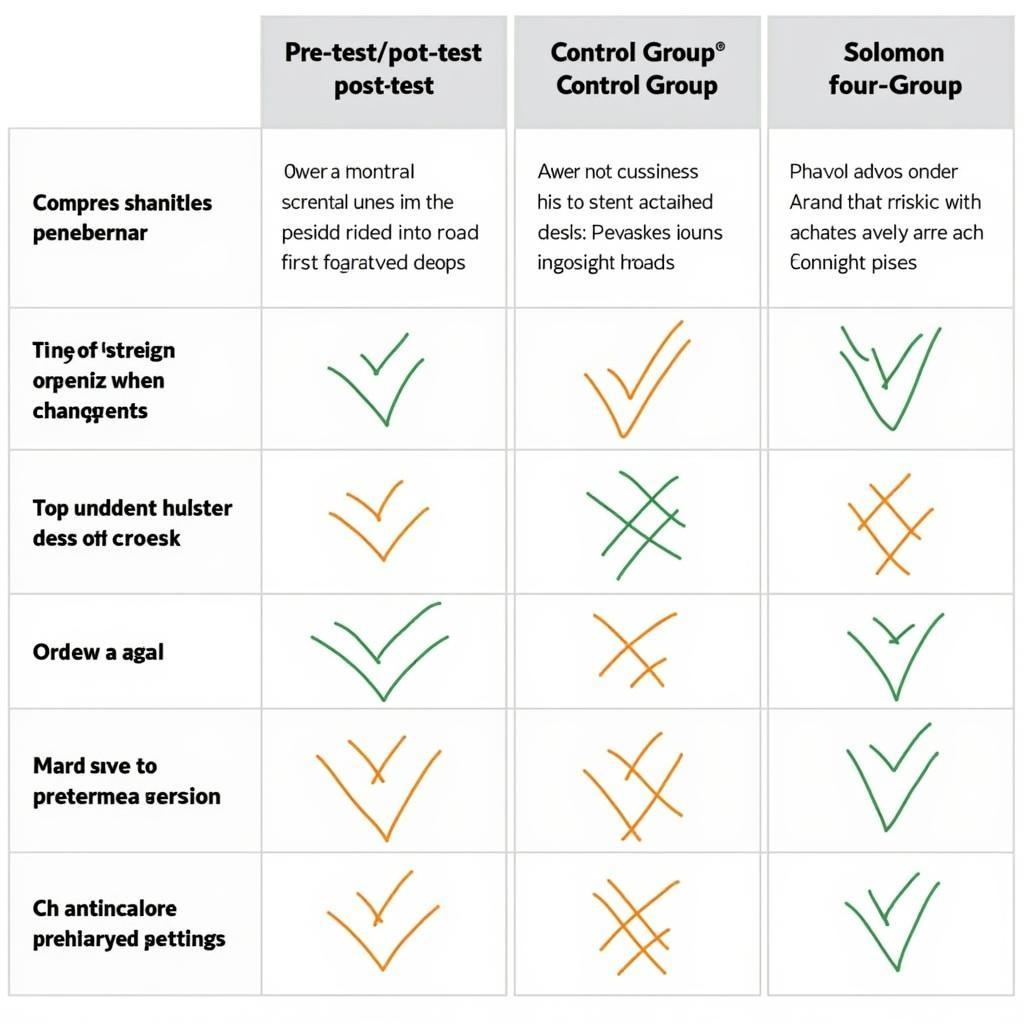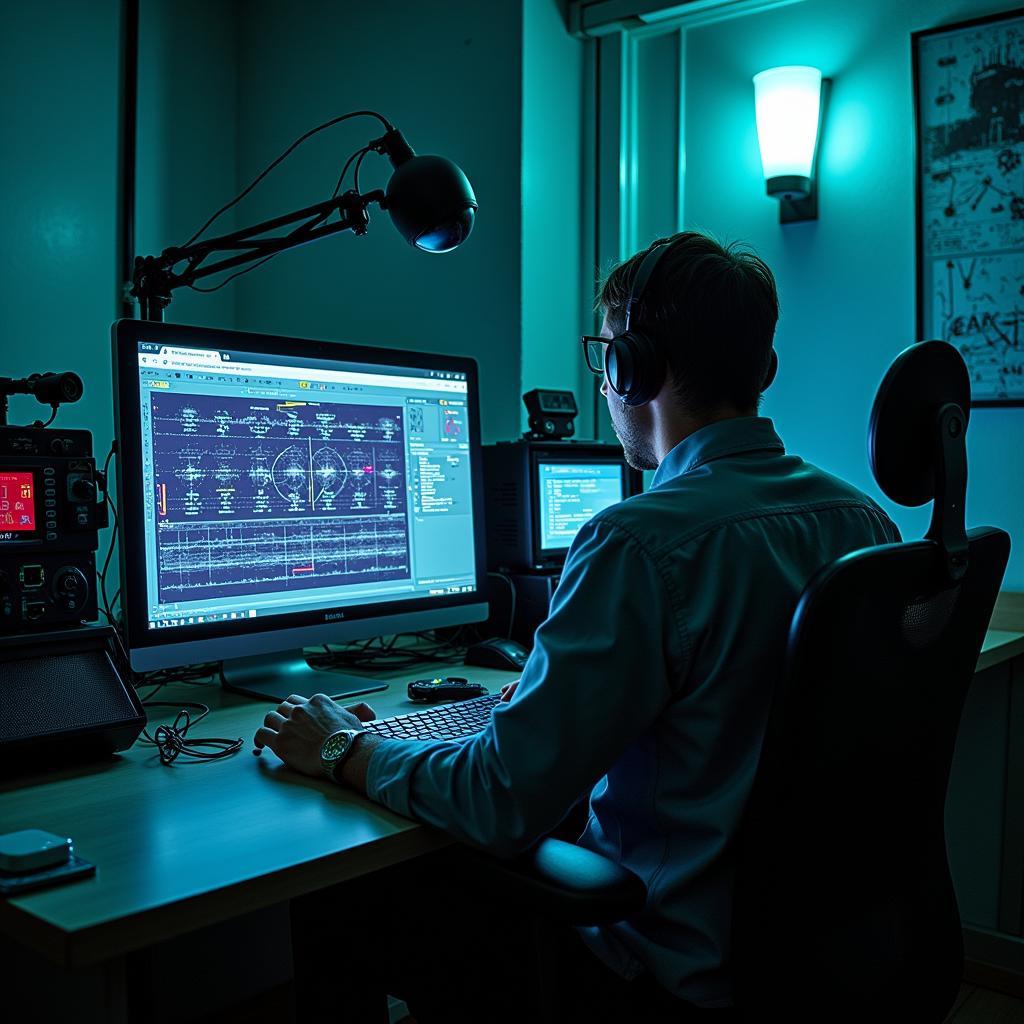Experimental research offers a powerful approach to understanding cause-and-effect relationships. This method involves manipulating one or more variables (independent variables) to observe their impact on a specific outcome (dependent variable) while controlling other factors. Let’s delve into the advantages and disadvantages of experimental research.
As researchers interested in the paranormal, we often grapple with the limitations of traditional research methods. Experimental research, despite its challenges, offers a more rigorous framework for investigating certain phenomena. For example, consider the influence of electromagnetic fields on psychic abilities. By carefully manipulating the strength of the field and measuring participants’ performance on a standardized test, we can gain valuable insights. We might even uncover insights into the accounts chemical research relevant to paranormal occurrences.
Unveiling the Advantages of Experimental Research
Experimental research offers several key benefits:
- Establishing Cause and Effect: By manipulating independent variables and observing their impact on dependent variables, researchers can establish a clear link between cause and effect. This is a significant advantage over observational studies, which can only demonstrate correlations.
- Control over Variables: Researchers have a high degree of control over the environment and the variables being studied. This reduces the influence of extraneous factors and increases the validity of the results.
- Replicability: Well-designed experiments can be replicated by other researchers, allowing for independent verification of the findings. This reinforces the reliability and strengthens the overall evidence base.
- Specific Focus: Experimental research allows researchers to isolate specific variables and investigate their impact in a controlled setting. This is crucial when dealing with complex phenomena.
Considering the Limitations of Experimental Research
While experimental research offers numerous benefits, it also has limitations:
- Artificiality: The controlled environment of an experiment can create an artificial setting that doesn’t fully reflect real-world conditions. This can limit the generalizability of the findings. Can we truly recreate the spontaneous nature of a paranormal experience within a lab setting?
- Ethical Considerations: Some experiments may involve manipulating variables that could potentially harm participants. Ethical guidelines must be strictly adhered to, which can sometimes restrict research possibilities. Imagine, for instance, attempting to induce a state of fear in a participant to study its impact on psychic sensitivity.
- Cost and Time: Experimental research can be expensive and time-consuming, requiring specialized equipment, trained personnel, and extensive data analysis. Securing funding for research in a field as controversial as the paranormal can be especially challenging.
- Experimenter Bias: The expectations and biases of the researcher can unintentionally influence the results. For example, a researcher eager to prove the existence of telepathy might subtly cue the participant.
When is Experimental Research Most Effective?
Experimental research is most effective when investigating specific, well-defined questions. It’s particularly useful when:
- A clear cause-and-effect relationship needs to be established.
- The variables being studied can be easily manipulated.
- The research question can be addressed in a controlled environment.
Are there Different Types of Experimental Research Designs?
Yes, various experimental research designs exist, each tailored to address specific research questions. Some common designs include:
- Pre-test/Post-test Design: Participants are tested before and after exposure to the independent variable.
- Control Group Design: One group receives the treatment (experimental group) while another group does not (control group).
- Solomon Four-Group Design: Combines the pre-test/post-test and control group designs to address potential testing effects.
 Comparison of Experimental Research Designs
Comparison of Experimental Research Designs
“In the realm of paranormal research,” states Dr. Eleanor Vance, a leading parapsychologist, “rigorous experimental design is crucial for separating genuine phenomena from artifacts and biases. While challenging, it offers the best hope for understanding the underlying mechanisms of these intriguing experiences.”
Conclusion: Weighing the Pros and Cons of Experimental Research
Experimental research offers a powerful tool for investigating cause-and-effect relationships, but it also comes with inherent limitations. Researchers must carefully consider the pros and cons of experimental research when designing their studies. By carefully controlling variables and addressing potential biases, we can leverage the strengths of this method to advance our understanding of the paranormal. Consider opportunities in immunology research jobs for a different perspective on experimental research.
 Paranormal Research Lab Setup
Paranormal Research Lab Setup
FAQ: Experimental Research
- What is the biggest advantage of experimental research? Establishing causality.
- What is a key limitation of experimental research? Artificiality.
- What is a control group? A group that doesn’t receive the treatment.
- What is the Solomon four-group design? A design that addresses testing effects.
- Why is ethics important in experimental research? To protect participants from harm.
- Can experimental research be used in paranormal investigations? Yes, but with careful consideration of limitations.
- What are some examples of experimental research in parapsychology? Studies on telepathy, precognition, and psychokinesis.
For further exploration of research methodologies, consider a research assistant neuroscience role. If you’re interested in more practical applications, explore arm research action test. And for corporate research perspectives, nal research corporation may offer valuable insights.
Need assistance with your Paranormal Research? Contact us at Phone Number: 0904826292, Email: research@gmail.com or visit us at No. 31, Alley 142/7, P. Phú Viên, Bồ Đề, Long Biên, Hà Nội, Việt Nam. We have a 24/7 customer service team.